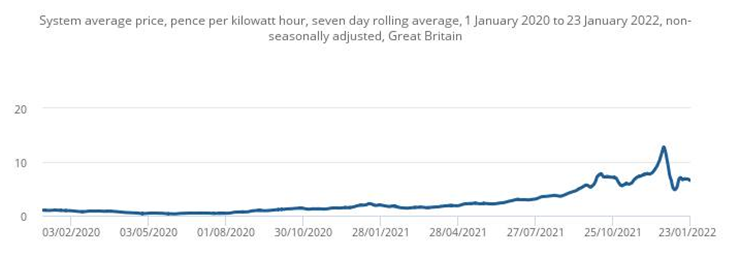Commercial efficiency FAQs
Where can I go for support?
- Cool Shropshire and Telford - Shropshire’s free environmental support scheme for local micro businesses and SMEs looking to be a little greener
- Midlands Net Zero Hub - We support organisations across the Midlands to identify and develop local energy strategies and projects
- Marches Growth Hub - Your gateway to business support in Herefordshire, Shropshire and Telford & Wrekin
- Business Energy Efficiency Programme - Grants from £2,000 to £20,000 available to help you lower your energy bills
Where can I apply for funding?
Please see Low-carbon funding | Shropshire Council and our funding opportunities page which is updated periodically.
How big is the commercial carbon footprint?
Industry and commerce combined in Shropshire were responsible for 511ktCO2 (0.5MtCO2) in 2019, so it's crucial to decarbonise these sectors in order to address climate change. Please see our climate dashboard for further stats.
What is the government doing about it?
Clean Growth has been a government strategy since 2017, outlined on the their website, the Energy White Paper (2020) and the new Energy Security Strategy.
What are we doing about it?
The Marches LEP Energy Strategy, the Midlands Net Zero Hub, and Cool Shropshire and Telford are all working towards decarbonising the local economy.
Why are we in an energy crisis?
The wholesale price of gas in 2022 was around four times what it was in 2021:
 Source: National Grid
Source: National Grid
Events happening in continental Europe are having a much wider impact on global energy prices, food supply and oil, diesel and gas imports. Given the massive energy price rises (4x gas and 2x electric) it's going to continue to be a tough time for businesses and householders. Whilst we continue to rely on gas imports for our energy mix, it's predicted that costs to the consumer will at least double by in 2023. This has massive economic implications for the UK putting many into fuel poverty. This will impact home and business owners, commercial and domestic tenants.
Why is it important to be efficient?
For both commercial viability and environmental reasons, easy low-cost measures can dramatically reduce your spend. Next to staffing and maintenance costs, energy is your most controllable overhead, and appropriate measures will also help to reduce maintenance costs.
Can we be green and still grow the economy?
Yes - by being innovative there are many co-benefits to clean growth. It's no longer true that fossil fuels are necessary to grow the economy, especially when the resulting damage is not accounted, and it's actually cheaper and quicker to install local decentralised distributed renewable generation. Ultimately decoupling from and the banning of fossil fuels and full electrification generated by 100% renewables will create a much more stable and sustainable economy long term.
Is renewable energy more expensive?
No - Transitioning to 100% UK home-grown clean renewable energy (solar and wind) has already proven quicker and cheaper to install than nuclear or drilling for gas.
This has been proven and referenced in Levelized Cost of Energy across the various energy generation technologies (Cost of electricity).
Unlike vehicle fuel, gas and heating oil are not heavily taxed. So, the comparison of the cost of energy per unit (kWh) for heating systems especially between electric and gas is unfair. It's up to government to regulate energy costs via OFGEM and incentivise heat pump uptake. Generating electricity with renewable energy is proven commercially at various scales so long as the site is appropriate.
Further information:
What are the co-benefits of going green?
- Clean growth provides skilled long-term jobs. The retrofit, EV (electric vehicles), renewable energy and efficiency markets will provide over 100,000 jobs in the UK, with 5,000 in the West Midlands alone
- Business parks operating entirely on renewables offer long-term affordable secure energy at an affordable cost
- Electric transport hubs can be operated by local renewables
- Farms can power themselves with renewables and sell any excess locally to commercial or domestic customers or back to the grid
- Decoupling from oil and gas will mean less reliance on volatile foreign energy markets and imports
Where can I go for further information?
- Our business efficiency section for guidance tailored to your sector
- Marches Local Enterprise Partnership – Sustainable business support
- Business Climate Hub - a global initiative that aims to mainstream climate action in the small to medium sized business community and enable SMEs to build resilient businesses for the future